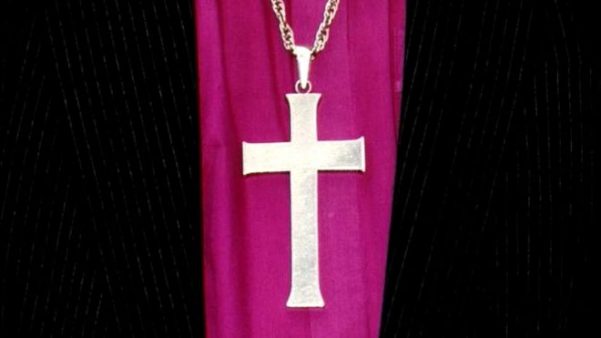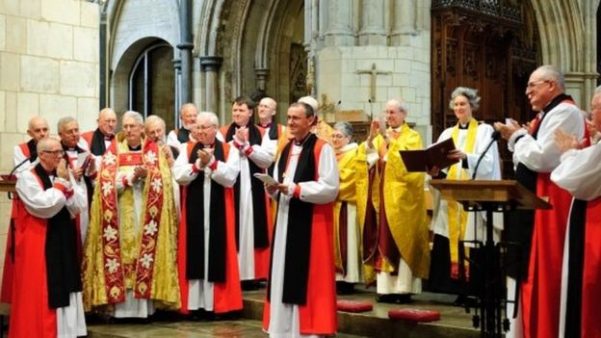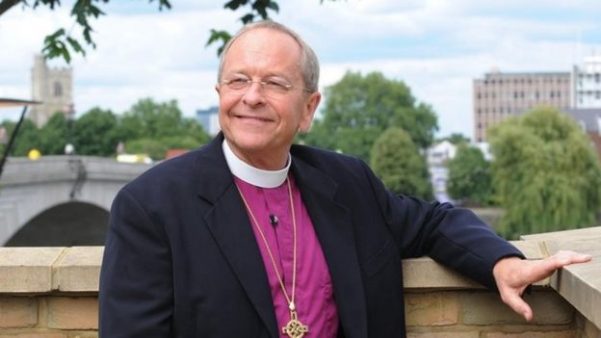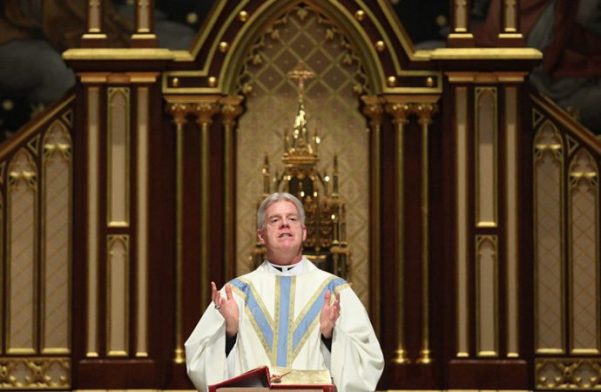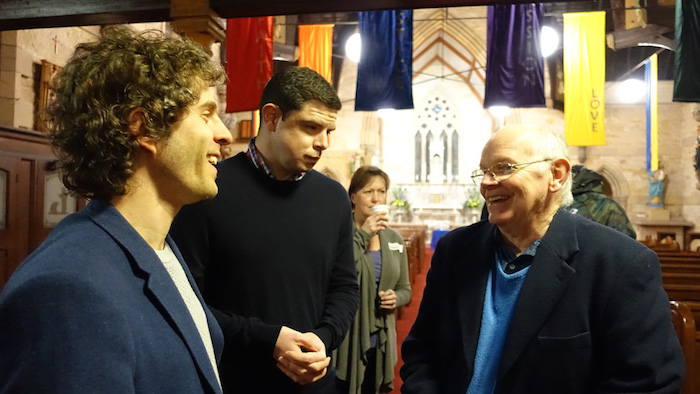In his address to new bishops attending their annual formation course, the Pope urged them to make mercy pastoral, to do their utmost to reach out to God’s people and be close to fragile families. In the seminaries, he advised them to aim for quality not quantity and not to trust those who retreat into a rigid way of thinking
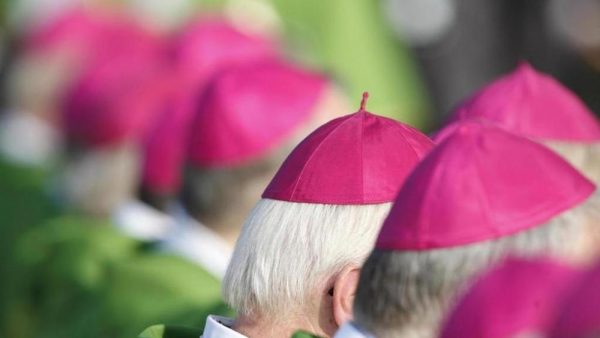
By iacvopo scaramuzzi
“The world is tired of dishonest charmers… And, I dare say, ‘fashionable’ priests and bishops. People sense this, the people of God have this sense and they refuse and distance themselves when they recognise narcissists, manipulators, defenders of their own causes, leaders of pointless crusades.” Pope Francis addressed a long speech to newly appointed bishops attending a training course in Rome, touching on a number of aspects relating to their ministry. He started with the importance of making mercy pastoral, in other words “accessible, tangible and possible to find,” “mercy” being “the essence of what God offers the world”. Bishops, Francis said, must be capable of seducing and attracting men and women of our time to God, without “complaints”, “leav[ing] no stone unturned in order to reach them, and spare no effort in recovering them”. Bishops must also be capable of initiating their Churches (“Today we ask for too much fruit from trees that have not been sufficiently cultivated”). Francis then asked them to take special care of “the structures of initiation of your Churches, especially the seminaries”, focusing on the “quality of the discipleship” rather than on the “quantity” of seminarians. The Pope beseeched bishops “to act with great prudence and responsibility in welcoming candidates or incardinating priests in your local Churches”. Francis also invited bishops to be close to their clergy, who were placed along their path “by chance” as well as families with their “fragility”.
“Ask God, who is full of mercy, what the secret is for making his mercy pastoral in your dioceses,” Francis said in his speech to the 154 new bishops (16 from missionary territories) who took part in the annual training course jointly organised by the Congregation for Bishops and the Congregation for the Oriental Churches. “Mercy must form and inform the pastoral structures of your Churches. … Do not be afraid of proposing mercy as the essence of what God offers the world because there is no greater thing the heart can aspire to. As my venerable and wise predecessor taught, ‘it is mercy that puts an end to evil,” Francis said quoting Benedict XVI, adding two rhetorical questions: “Can our insecurities and mistrust perchance inspire tenderness and consolation in the midst of solitude and abandonment?”
To make mercy “accessible, tangible and possible to find,” the Pope recalled first and foremost that “a remote and indifferent god can even be ignored, but one does not so easily resist a God Who is so close, and wounded out of love. Goodness, beauty, truth, love – this is what we can offer to this begging world, even if it is in half-broken bowls. However, it is not about attracting to oneself. The world is tired of dishonest charmers. And, I dare say, ‘fashionable’ priests and bishops. People sense this, the people of God have this sense and they refuse and distance themselves when they recognise narcissists, manipulators, defenders of their own causes, leaders of pointless crusades. Rather, seek to follow God, Who already introduces Himself before your arrival. … God never gives up! Instead we, accustomed to surrender, who often give in, preferring to allow ourselves to be convinced that truly they were able to eliminate him and invent bitter discourses to justify the idleness that blocks us in the immobile sound of vain complaints. It is horrible when a bishop complains.”
Secondly, the Pope said it is essential to “initiate” those who are entrusted to pastors: “Please, I ask you to have no other perspective from which to look upon your faithful other than that of their uniqueness; leave no stone unturned in order to reach them, and spare no effort in recovering them. Be bishops capable of initiating your Churches in this abyss of love. Today,” Francis underlined, “we ask for too much fruit from trees that have not been sufficiently cultivated. The sense of initiation has been lost, and yet the truly essential things in life may be reached solely through initiation. Think of the educational crisis, the transmission of both content and values, emotional illiteracy, vocational paths, discernment in families, the search for peace: all these require initiation and journeys guided with perseverance, patience and constancy, the signs that distinguish the good shepherd from the hireling”.
Francis focused his attention especially on the formation of future priests: “I urge you to take special care of the structures of initiation of your Churches, especially the seminaries. Do not allow yourselves to be tempted by numbers, by the quantity of vocations. Seek instead the quality of the discipleship. Do not deprive seminarians of your firm and loving fatherly touch. Let them grow until they are free to be with God “as calm and peaceful as a child weaning in its mother’s arm”, not prisoners of their own whims, overcome by fragility but free to embrace all that God asks of them, even when this is not as pleasant as the maternal womb was at the start. Beware also of seminarians who retreat into a rigid way of thinking – there is always something ugly beneath the surface”. “I also beg you to act with great prudence and responsibility in welcoming candidates or incardinating priests in your local Churches. Remember that from the very beginning the relationship between a local Church and her priests is inseparable, and a vagrant clergy in transit from one place to another is never accepted”.
Finally, quoting the parable of the Good Samaritan, the Pope said bishops should be “capable of accompanying”: “Be bishops with a heart wounded by a mercy like this, tireless in the humble task of accompanying the man that God, ‘by chance’, has placed in your way.” Francis had another request for bishops: “Accompany first, and with patient care, your clergy” and “reserve special accompaniment for all families, rejoicing with their generous love and encouraging the immense good they bestow in this world. Be watchful, above all, of those that are most wounded. Do not pass over their fragility.”
“I am pleased to welcome you and to share with you some thoughts that spring to the Successor of Peter’s mind when he has before him those who have been “fished” from God’s heart, to lead his Holy People,” the Pope had started by saying. “May God save you from rendering this thrill fruitless, from taming it and emptying it of its ‘destabilising” power”. Let yourselves be destabilised, it’s good for bishops,” Francis said. “Many people these days mask and conceal themselves. They like to construct personalities and invent profiles. … They are unable to bear the thrill of knowing that they are known by Someone Who is greater and Who does not despise our littleness, Who is more Holy and does not reproach our weakness, Who is truly good and is not scandalised by our wounds. May it not be so for you,” he concluded, “let that thrill run through you, do not remove it or silence it”.
Complete Article HERE!

